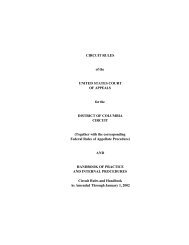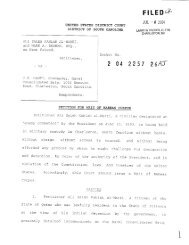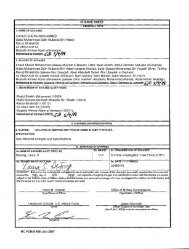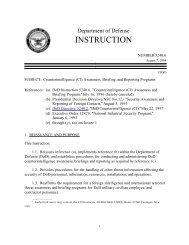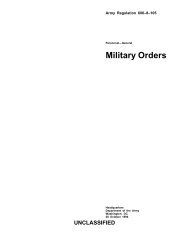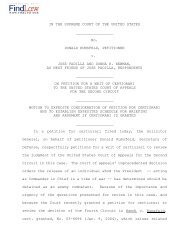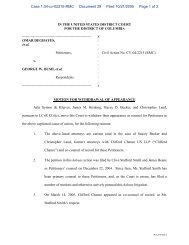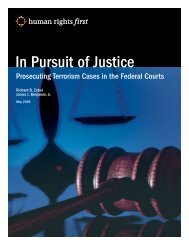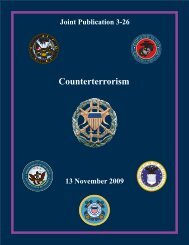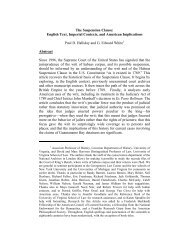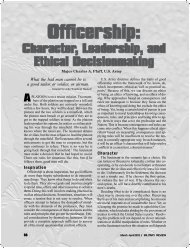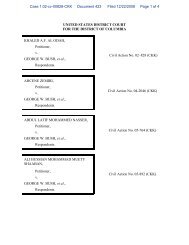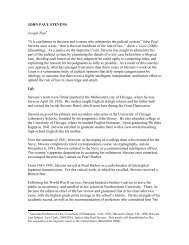Government Merits Brief - Hamdan v. Rumsfeld
Government Merits Brief - Hamdan v. Rumsfeld
Government Merits Brief - Hamdan v. Rumsfeld
You also want an ePaper? Increase the reach of your titles
YUMPU automatically turns print PDFs into web optimized ePapers that Google loves.
45<br />
commission. The Court described military commissions as<br />
“our common-law war courts” and observed that “[n]either<br />
their procedure nor their jurisdiction has been prescribed by<br />
statute.” 343 U.S. at 346-347. Rather, the Court noted, the<br />
military commission “has been adapted in each instance to the<br />
need that called it forth.” Id. at 347-348. The Court further<br />
explained that, in contrast to its active regulation of “the jurisdiction<br />
and procedure of United States courts-martial,”<br />
Congress had shown “evident restraint” with respect to the<br />
regulation of military commissions. Id. at 349. The Court<br />
concluded that, “[i]n the absence of attempts by Congress to<br />
limit the President’s power,” the President “may, in time of<br />
war, establish and prescribe the jurisdiction and procedure of<br />
military commissions.” Id. at 348; see Quirin, 317 U.S. at 30<br />
(noting that Congress rejected option of “crystallizing in permanent<br />
form and in minute detail every offense” triable by<br />
commissions and instead “adopt[ed] the system of common<br />
law applied by the military tribunals”). 20<br />
Petitioner suggests (Br. 19-20 n.10) that regulations and<br />
historical practice “confirm that commissions follow courtmartial<br />
rules.” He quotes a portion of the preamble to the<br />
Manual for Courts Martial, which states that “military commissions<br />
* * * shall be guided by the appropriate principles<br />
of law and rules of procedure and evidence prescribed for<br />
courts-martial.” See Manual for Courts-Martial, pt. 1, para.<br />
2(b)(2), at I.1 (2005). That captures roughly half the common<br />
sense of the matter. Of course, military commissions, which<br />
tend to be an episodic response to particular conflicts, borrow<br />
from the permanent procedures for courts-martial where ap-<br />
20 Although Madsen interpreted the Articles of War (notwithstanding the<br />
fact that UCMJ had already been enacted, see 343 U.S. at 345 n.6), the relevant<br />
provisions of the UCMJ are identical in all material respects to their counterparts<br />
in the Articles of War. Compare Articles of War arts. 15 and 38, 39 Stat.<br />
653, 656, with UCMJ arts. 21 and 36, 10 U.S.C. 821, 836.



